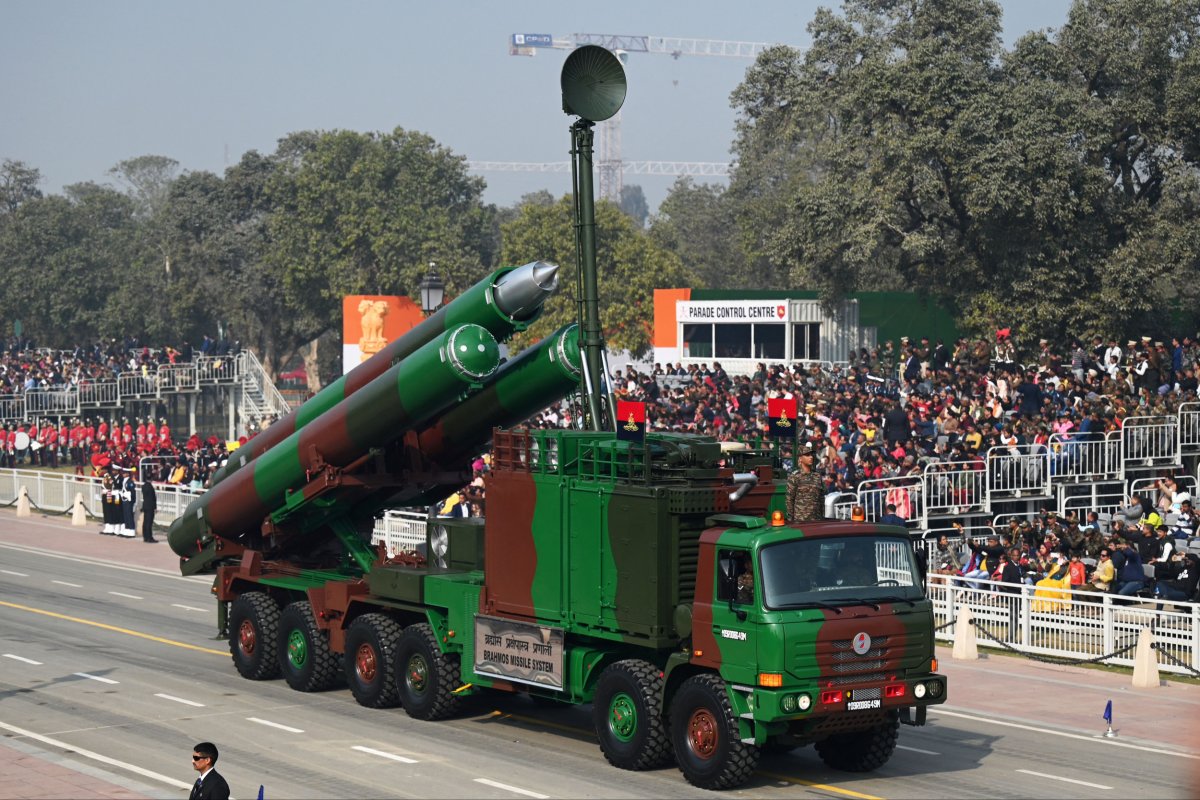India is poised to fulfill an order to the Philippines for its homemade BrahMos missiles, marking a significant moment in New Delhi's defense exports and warming ties with Manila as both governments face shared challenges from neighboring China.
The delivery, scheduled for completion by next month, comes two years after India and the Philippines signed a deal worth nearly $375 million, aimed at equipping the Philippine Marines with three batteries of anti-ship variants of the BrahMos supersonic cruise missile, which can be launched from the land, ground and air.
The Philippines is America's oldest treaty ally in Asia, while India and the United States have been brought closer together by mutual concerns surrounding China's military buildup as well as its assertive behavior against other, smaller claimants of disputed territories in the South China Sea.
"As Manila is seeking to strengthen its military capabilities against adversaries with increasing tensions with China in the South China Sea, the timely delivery of three batteries of BrahMos supersonic cruise missiles with a range of 310 miles will add to the country's capabilities to protect its coasts and its maritime claims against its adversaries," Pooja Bhatt, an independent maritime security analyst, told Newsweek.
"It also provides a reliable defense trade partner to Manila, which is seeking diversification of its partners beyond its established allies," Bhatt said.
The BrahMos missile system—developed under an India-Russia joint venture—is a two-stage rocket based on the "fire-and-forget" self-guided capability. The Philippine Marines will receive anti-ship missiles, and the Philippine Army has ordered land attack variants to be delivered at a later date—both a significant upgrade to the country's arsenal as geopolitical tensions run high.
The ground systems required to deploy the BrahMos will reach the Southeast Asian nation in early February, India's Hindustan Times newspaper said last week, citing Samir Kamat, head of the Indian Defense Ministry's Defense Research and Development Organization.
The BrahMos system's effective "kill chain" still requires additional assets, including aircraft and ships, to assist with targeting, according to Japan Air Self-Defense Force Lt. Col. Tonosaki Kojiro, who wrote in a June 2022 report for the Asia Maritime Transparency Initiative, a program under the Center for Strategic and International Studies think tank in Washington, D.C.
Manila will look to the new coastal defense capability to deter Beijing from attempting to wrest control of more islands, reefs, and shoals in the Spratly Islands archipelago, which is contested by half a dozen nations but lies within the Philippines' exclusive economic zone.

President Ferdinand Marcos Jr. of the Philippines will want to avoid a repeat of the standoff over Scarborough Shoal in 2012, when China, using maritime malitia boats and large coast guard vessels, established de facto control over the uninhabited atoll located 130 miles from the Philippines and some 600 miles from the nearest Chinese province.
Beijing, in recent years, has had its eyes on the vulnerable Second Thomas Shoal nearby, where a rusting Philippine Navy warship, manned by a small contingent of marines, represents Manila's footprint in the area.
The U.S. is legally obliged to protect the Philippines under their decades-old Mutual Defense Treaty, which U.S. President Joe Biden and his administration officials have repeatedly reaffirmed.
India's openness to arming the Philippines is part of a broader initiative to expand its defense exports. Prime Minister Narendra Modi's government plans to transfer $5 billion worth of homemade weaponry by 2025.
Over 100 domestic defense contractors are currently involved in the export of military hardware to more than 85 countries, including orders for missiles, artillery guns, rockets, armored vehicles, offshore patrol vessels, personal protective gear, radar systems, surveillance systems, and ammunition, according to the Hindustan Times.
When the leaders of the Quad—Australia, India, Japan and the U.S.—met in Tokyo in 2022, they announced their intention to improve maritime domain awareness, by providing near real-time, integrated and cost-effective capabilities to regional partners to jointly monitor and safeguard coastal waters. It was a move to counter piracy, illegal fishing, and China's grey zone activities at sea.
Uncommon Knowledge
Newsweek is committed to challenging conventional wisdom and finding connections in the search for common ground.
Newsweek is committed to challenging conventional wisdom and finding connections in the search for common ground.
About the writer
Aadil Brar is a reporter for Newsweek based in Taipei, Taiwan. He covers international security, U.S.-China relations, and East Asian ... Read more
To read how Newsweek uses AI as a newsroom tool, Click here.








